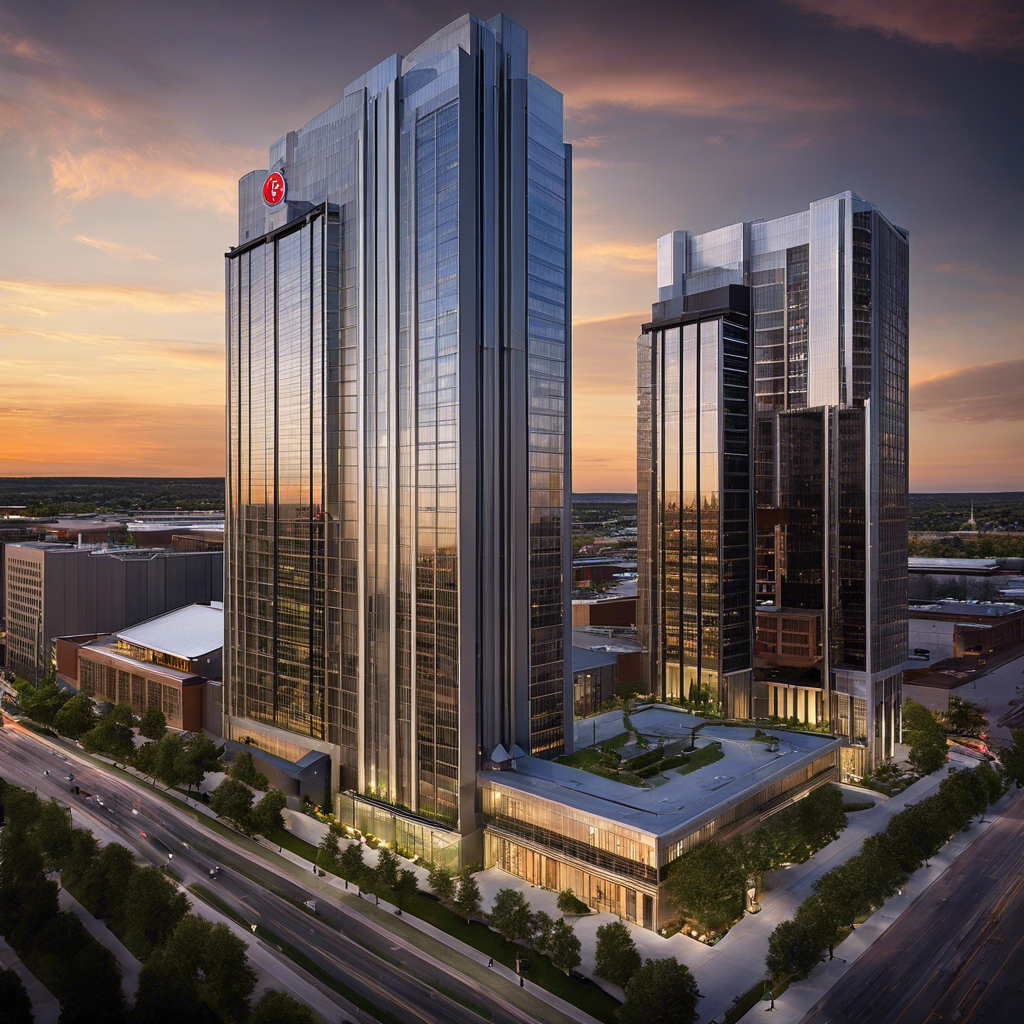Imagine walking into a large commercial building in the heart of Tulsa on a sweltering summer day, and feeling an immediate wave of cool air wash over you as you step inside. The comfort and relief is palpable, and you can’t help but wonder how such a massive space is able to maintain such a perfect temperature.
Well, dear reader, the answer lies in the innovative world of Variable Refrigerant Flow (VRF) HVAC systems. These advanced systems have been revolutionizing the way large commercial buildings are cooled and heated, offering energy efficiency, flexibility, and cost savings like never before.
But there’s more to uncover, so let’s dive in and find out how VRF systems are transforming the commercial HVAC landscape in Tulsa.
Key Takeaways
- VRF systems in large commercial buildings in Tulsa offer highly efficient energy consumption.
- The flexibility and zone control of VRF systems allow for customized temperature settings and energy savings.
- VRF systems enable simultaneous heating and cooling, creating a comfortable and energy-efficient environment.
- Implementing VRF systems in Tulsa can lead to significant cost savings and a positive return on investment.
Energy Efficiency of VRF Systems
Are VRF HVAC systems energy efficient for large commercial buildings in Tulsa?
Absolutely. VRF systems, or Variable Refrigerant Flow systems, are highly efficient when it comes to energy consumption. They use advanced technology that allows for precise control of indoor temperatures, resulting in optimized energy usage.
With VRF systems, you can expect reduced energy bills and a smaller environmental impact compared to traditional HVAC systems. These systems utilize inverter-driven compressors, which adjust their speed based on the cooling or heating demands of each zone, ensuring that only the necessary amount of energy is consumed.
Additionally, VRF systems offer individual zone control, allowing for customized temperature settings in different areas of the building. This targeted approach further contributes to energy efficiency by avoiding unnecessary cooling or heating.
Therefore, when it comes to energy consumption and environmental impact, VRF HVAC systems are an excellent choice for large commercial buildings in Tulsa.
Flexibility and Zone Control
With its advanced technology and precise control of indoor temperatures, VRF HVAC systems offer exceptional flexibility and zone control for large commercial buildings in Tulsa. The flexibility in design allows for the customization of heating and cooling zones, ensuring optimal comfort for different areas of the building.
This flexibility is especially beneficial in large commercial buildings with varying occupancy and usage patterns. The ability to control each zone individually also enables energy savings by only conditioning occupied spaces, reducing overall energy consumption.
VRF systems utilize variable speed compressors and advanced sensors to adjust the cooling and heating output based on the specific needs of each zone. This precise control not only enhances comfort but also contributes to energy efficiency, leading to potential cost savings for building owners and occupants.
Simultaneous Heating and Cooling
Simultaneous heating and cooling is a key feature of VRF HVAC systems, allowing for efficient and balanced temperature control throughout large commercial buildings in Tulsa. With the ability to provide both heating and cooling simultaneously, VRF systems ensure optimal comfort in every area of the building, regardless of the varying climate conditions.
This simultaneous operation is achieved through the use of multiple indoor units, each connected to a central outdoor unit. By utilizing advanced energy management techniques, VRF systems can efficiently distribute heating and cooling loads based on the specific needs of each zone within the building. This ensures that energy isn’t wasted on heating or cooling unoccupied areas, resulting in significant energy savings.
With VRF HVAC systems, simultaneous heating and cooling is seamlessly integrated, providing a comfortable and energy-efficient environment for all occupants.
Cost Savings and Return on Investment
To maximize cost savings and achieve a favorable return on investment, it’s important to consider the financial benefits of implementing VRF HVAC systems in large commercial buildings in Tulsa.
One of the major advantages of VRF systems is their energy-saving capabilities. These systems are designed to efficiently distribute heating and cooling throughout the building, allowing for precise temperature control in individual zones. By avoiding the energy waste associated with traditional HVAC systems, VRF systems can significantly reduce energy consumption and lower utility costs.
Additionally, VRF systems have a relatively short payback period. The payback period refers to the time it takes for the cost of implementing the system to be recovered through energy savings. With their high energy efficiency, VRF systems can often recoup the initial investment within a few years, providing long-term cost savings and a positive return on investment.
Considerations for Implementing VRF Systems in Tulsa
When considering the implementation of VRF systems in Tulsa, it’s important to carefully evaluate the specific requirements and constraints of each individual commercial building.
Implementing VRF systems in large commercial buildings can present certain challenges. One of the main challenges is the complexity of the system, which requires a thorough understanding of the technology and its components. Additionally, proper installation and commissioning of the system is crucial for optimal performance.
Maintenance requirements for VRF systems include regular inspections and cleaning of filters and coils, as well as periodic checks of refrigerant levels and system pressures. It’s also important to ensure that the building’s electrical system can handle the additional load of the VRF system.
Frequently Asked Questions
How Do VRF HVAC Systems Compare to Traditional HVAC Systems in Terms of Energy Efficiency?
VRF HVAC systems offer higher energy efficiency compared to traditional systems. They provide cost savings and a better return on investment. When comparing energy efficiency, VRF systems outperform traditional HVAC systems in large commercial buildings.
Can VRF Systems Provide Individualized Temperature Control in Different Zones of a Large Commercial Building?
In a large commercial building, VRF systems can provide individualized temperature control in different zones. For example, you can have cool air in the conference rooms while maintaining a cozy warmth in the offices.
Is It Possible to Achieve Simultaneous Heating and Cooling With VRF Systems, and How Does This Impact Energy Consumption?
Yes, it is possible to achieve simultaneous heating and cooling with VRF systems. This feature allows for more efficient temperature control in different zones of a large commercial building, reducing energy consumption and increasing overall efficiency.
What Are the Potential Cost Savings and Return on Investment Associated With Implementing VRF Systems in Large Commercial Buildings?
Are you curious about the potential cost savings and return on investment for implementing VRF systems in large commercial buildings? A thorough cost analysis can provide valuable insights into the long-term benefits.
Are There Any Specific Considerations or Challenges When It Comes to Implementing VRF Systems in the Climate and Environment of Tulsa?
When implementing VRF HVAC systems in Tulsa, you should be aware of specific challenges and climate considerations. These factors can affect the system’s performance and efficiency, so it’s crucial to address them accordingly.


